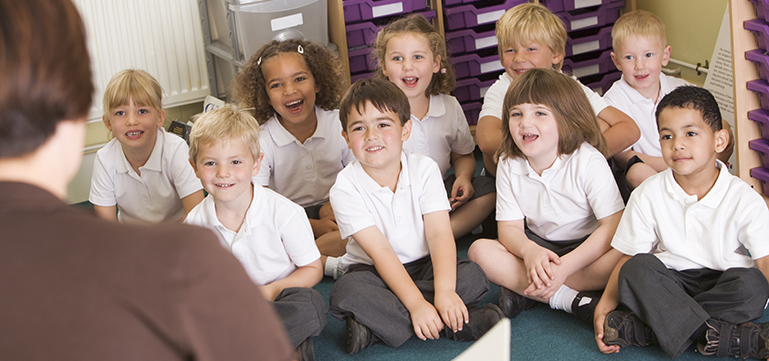Developing a curriculum that improves pupils’ skills and enthusiasm for learning

Quick links:
Information about the school
Ysgol Beca is a rural Welsh-medium primary school that is situated on the border between Carmarthenshire and Pembrokeshire. The school is divided into 3 mixed-age classes. The foundation phase is taught in one class and key stage 2 is taught as one department but with 2 qualified teachers in an open-plan learning area. Around 3% of pupils are eligible for free school meals and the school has identified around 17% of its pupils as having additional learning needs. A majority of pupils come from Welsh-speaking homes. Welsh is the school’s everyday language and the medium of teaching and learning. The headteacher has been in post since January 2009.
Context and background to the effective or innovative practice
Through the school’s monitoring and quality assurance systems, leaders had identified that providing a full curriculum and ensuring each pupil’s commitment to learning was difficult, considering the school’s limited time and human resources. Following the publication of the Successful Futures document to establish a new curriculum for Wales, the teaching staff decided that provision that was available to pupils in key stage 2 needed to be adapted. Foundation phase provision has become embedded, and leaders decided that they needed to ensure that this effective work continues throughout the school. Ysgol Beca has been built in an open-plan layout and, as a result, it lends itself well to thematic teaching in small groups, rather than collective learning as a whole class.
Description of nature of strategy or activity
After considering the school’s situation, staff merged key stage 2 into one class, which is now taught by two qualified teachers and a member of support staff. Traditional lessons were abandoned and thematic learning periods were established in the afternoon. A programme was planned whereby pupils receive four challenges to be completed during free choice periods, and two independent tasks set by the teacher to be completed at a specific time, and focus sessions. The main aim of the focus sessions is to provide opportunities to nurture literacy and numeracy skills through science and ICT. The independent activities and challenges are based on the class theme, and review the numeracy, literacy and ICT skills that have been introduced to pupils during more structured lessons. The class is now one area that is full of the hustle and bustle of learning, which develops a very wide range of skills across the curriculum.
The school identifies specific themes each term. Pupils are included in planning the content of the theme, and teachers consider the content and range that have been taught during the term carefully. As a result, staff identify any gaps in provision and plan purposefully to ensure that pupils receive a complete curriculum. Staff plan in order to ensure that there are periods of teaching outdoors by using the resources that are available to the school. There are specific plans for mathematics and language, but the thematic periods are open to learners and staff, as long as they review the skills that have been introduced in language and mathematics lessons.
What impact has this work had on provision and learners’ standards?
As a result of this provision, pupils’ commitment to their learning has developed to very high levels. They are keen to complete tasks to an excellent standard, and take pride and ownership of their work because they have played a part in planning it. Pupils greatly enjoy the opportunity to have an element of choice in their education. They enjoy the challenges and gain a sense of success because they review skills that have been introduced to them in various contexts.
Learners are of the opinion that the new structure and the innovative curriculum that is provided are very successful. They greatly enjoy the fact that they are able to choose and see the benefit of focus sessions, and feel that the teachers are able to challenge and support them very effectively.
The standards that are seen in pupils’ books have improved significantly across the range of abilities in the classroom. Standardised test results show that their number and literacy skills have developed very successfully under the new provision. Although discipline was not a problem at the school, the level of enthusiasm and respect towards learning has also improved.
How have you shared your good practice?
The school shares its practice with governors and parents through newsletters and specific meetings. The school will register this good practice on the ERW website through the Dolen platform.